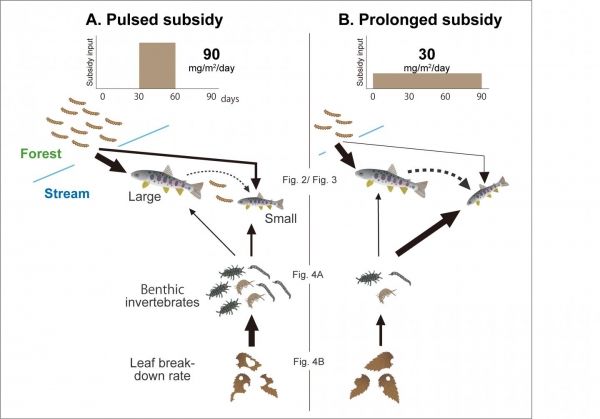Insects that fall from the surrounding forest provide seasonal food for fish in streams. Researchers at Kobe University and The University of Tokyo have shown that the lengthening of this period has a profound effect on food webs and ecosystem functions present in streams.
These research results provide proof that changes in forest seasonality also affect the ecosystems of nearby rivers. This finding highlights the importance of predicting the effects of climate change on ecosystems.
The research group consisted of Associate Professor SATO Takuya and post-graduate student UEDA Rui of Kobe University’s Graduate School of Science, and Associate Professor TAKIMOTO Gaku of The University of Tokyo’s Graduate School of Agricultural and Life Sciences.
Read more at: Kobe University
When there is a pulsed (intensive) supply of terrestrial invertebrates, competition between the salmon is reduced, resulting in hardly any size variation between individual fish. In the pulsed groups, the majority of salmon ate terrestrial invertebrates, reducing the predation pressure on benthic invertebrates. This had a domino effect on the numbers of benthic invertebrates and the breakdown rate of leaf detritus. Solid arrows show predator/prey relationships and the dotted arrows indicate the strength of intraspecific competition. The thickness of the arrow corresponds to the scale of the effect. (Photo Credit: Takuya Sato)


